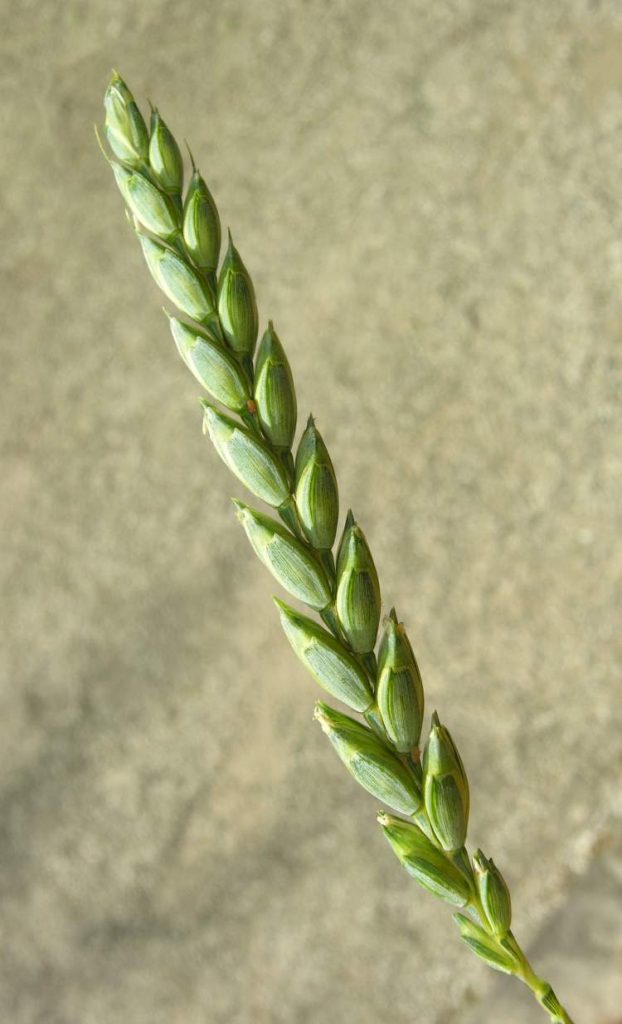What is spelt?
Spelt (Triticum spelta) is a variety of wheat that has been cultivated for about 7,000 years and is considered the origin of the rest of the current wheat varieties. It receives many different names depending on the area: green wheat, wild wheat, scandium, farro (Italy) …
It is not very popular since it almost disappeared as a result of its low productive performance. However, nowadays, its production has increased due to its high nutritional value.
It is a variety of wheat that is ideal for organic farming. On the one hand, it has a great resistance to pests and several parasites, and on the other hand, it is highly resistant to adverse climates and unfavorable lands.
Like common wheat, spelt is used to make bread, cookies and beer, among other products.
The assimilation of its nutrients is extraordinary, since it is a plant that has not suffered so many variations or “improvements” as wheat, and it is less allergenic. Doctors and therapists who recommend the blood groups diet, the paleo diet or other types of diets that are low in histamine agree that their patients improve their condiction when they start eating spelt instead of wheat. According to the experts, this change helps reduce the manifestations of what they call suballergies or symptoms that do not have any apparent explanation. For instance: skin problems, headaches, nonspecific pain, problems to lose weight, among others. We have observed that the clients who have stopped eating wheat by medical prescription and are now eating spelt immediately felt more energetic and agile, reduced volume – not weight -, and reduced some of their respiratory symptoms and gastrointestinal, among others.
Nutritional information
With respect to common wheat, spelt contains a higher amount of proteins, minerals, vitamins and oligoelements.
In addition to a good amount of protein, it also contains the eight essential amino acids, which make it suitable for vegetarians. Spelt is highly nutritious due to its high amount of magnesium, iron, phosphorus, vitamins E and B and beta-carotenes .
Whole grain spelt also provides a high amount of fiber, which helps with constipation, obesity and any problem caused by lack of fiber in our diet.
Like common wheat, it contains gluten, so it is not suitable for people with celiac disease.





